 Marcus A. Templar
Marcus A. TemplarNational Security Advisor, Macedonian League
National security includes everything that has the potential to endanger our country’s existence or way of life. It can be physical or psychological.
National security is the ability of national institutions to prevent adversaries from using various means to harm our country or its National Interests. Also, it is the confidence of the citizens of the country in their government and established social, political, legal, financial, and other institutions. Once these institutions cease to exist, the country is considered failed, collapsed.
Infant mortality is a major determining factor of both the structure and operation of institutions of states. This is a fact. The United Nations keeps track of the Infant Mortality of the world, and intelligence agencies use the infant mortality rate to ascertain the direction of a country’s future. The higher the infant mortality of a country, the gloomier is its future. If a state cannot or will not provide all necessary attention to its children, for example, primary medical care, highly nutritional diet, suitable education and a few other essential services that promote the health and welfare of the mothers, it signifies that the country’s institutions do not work, and the future of the country is highly questionable.
- In 1950, Afghanistan 289.197 deaths per thousand, the United States 31.951 and Iceland only 23.983.
- In 1960, Afghanistan 244.266 deaths per thousand, the United States 26.364 and Iceland only 17.305.
- In 1970, Afghanistan 203.3 deaths per thousand, the United States 20.524 and Iceland only 12.625.
- In 1980, Afghanistan 162.926 deaths per thousand, the United States 13.016 and Iceland only 7.826.
- In 1990, Afghanistan 121.58 4 deaths per thousand, the United States 9.634 and Iceland only 5.293.
- In 2000, Afghanistan 91.56 deaths per thousand, the United States 7.263 and Iceland only 3.24.
- In 2017 Afghanistan 53.386 deaths per thousand, the United States 5.844 and Iceland only 1.318.
This said expansion includes agencies directly under civilian direction and others under military leadership although under the control of civilian authorities.
Before we deal with the subject of intelligence, we should know the meaning of the word as it is used by professionals. The definition of intelligence has troubled many intelligence professionals throughout the years, especially those who understand the full scope of their craft. Even professionals shrink from answering the question “what is the definition of intelligence” and rightly so.
So, what is “Intelligence”? To a man like me who has worked 30 years in that specific field of National Security, intelligence is the analysis of carefully collected information free of contaminated and inaccurate material. It includes objectivity, which is independent of political considerations based on all available credible sources and timeliness. Having said that, it is not unusual that stale, fragmentary, and speculative, and even nefarious and unreliable information is pushed in by politically motivated personnel, most of whom are appointees just to please the boss.
Some information may also be based on dubious informers with sketchy motives or leaked or stolen documents of unknown origin because they match some person’s beliefs, or even the potentially flawed perceptions of intelligence agents and analysts. It is precisely the reason why a departmental fusion process exists, and agencies propel the information to the Office of National Intelligence, where specific information gets an examination after it undergoes a thorough cleansing.
Collected Information is divided into three different levels of intelligence value, and it’s crucial for intelligence analysts involved in the security of the country to recognize them. Generally, there are three ‘levels’ of intelligence value: tactical, operational, and strategic.
Tactical intelligence primarily deals with the current situation and gives customers the information they need to carry out existing policy initiatives, but for a narrow area. This level of intelligence is intended primarily to respond to the needs of military field commanders of company or battalion strength so they can plan for and, if necessary, conduct combat operations. The area of engagement would equate to a town or even township.
That brings us to the next level up, the Operational Intelligence. Operational Intelligence is where the combined actions or even decisions of larger military units like a Brigade or a Division are affected. It embraces and coordinates several tactical intelligence areas.
Information about a military campaign is of operational intelligence significance. The maneuvering of battalions and brigades is of functional intelligence value. It is like such an operational level would equate to a state or a region. Operational Intelligence is actionable information about specific incoming attacks.
This takes us from operational conditions that take place in multiple areas and start developing a National or Strategic picture, but it could also epitomize the global level. This level is what we call Strategic Intelligence.
Strategic Intelligence is the cornerstone of our country’s national security. It helps the decision-makers of the country to look ahead. Analysis of collected information at that level stimulates dialogue, not only exchanging arguments and counterarguments but also articulating various propositional approaches, such as claiming, inspiring, admitting or retracting a plan among the policymakers. The outcome of such a communication establishes a future policy that could affect either the national interests or the national security of our country or stability of a region or even the world. Regional and global stability is a fundamental prerequisite for peace between peoples and cultures.
Strategic Intelligence expresses the highest-level planning of political and military objectives dealing with national interests and national security because it has national security and foreign policy implications. It provides the policymakers with the information needed to create a new initiative that carries the country forward. One needs to realize that the products of national security of a foreign country come in direct agreement with our national interests since it contributes to regional and perhaps global stability.
The definition of what Strategic Intelligence is was given by Sherman Kent put in his book titled, “Strategic Intelligence for American World Policy.” He wrote,
"Strategic Intelligence is the kind of knowledge a State must possess regarding other states in order to assure itself that its cause will not suffer nor its undertakings fail because its statesmen and soldiers plan and act in ignorance."
The U.S. Intelligence Community is composed of 17 organizations:
Two independent agencies
- the Office of the Director of National Intelligence (ODNI) and
- the Central Intelligence Agency (CIA);
Eight Elements of the Department of Defense
- the Defense Intelligence Agency (DIA),
- the National Security Agency (NSA),
- the National Geospatial-Intelligence Agency (NGA),
- the National Reconnaissance Office (NRO),
- Army,
- Navy,
- Marine Corps, and
- Air Force.
Seven elements of other departments and agencies
- The Department of Energy’s Office of Intelligence and Counter-Intelligence;
- the Department of Homeland Security’s Office of Intelligence and Analysis
- U.S. Coast Guard Intelligence;
- the Department of Justice’s Federal Bureau of Investigation
- the Drug Enforcement Agency’s Office of National Security Intelligence;
- the Department of State’s Bureau of Intelligence and Research;
- the Department of the Treasury’s Office of Intelligence and Analysis.
The daily Presidential Briefing is part of collective intelligence production and dissemination. It is the result of one-liners that each department of each agency prepares in the form of a triangle or a pyramid. At the end of the day, each agency assembles its own one-liner page and disseminates it to the ODNI. The ODNI determines what the POTUS must know, and after gathering all 16, one-liners upholds the most vital information to bring to the attention of the President where selected briefers explain to the President the domestic and global issues of the day. Whether or not the President pays attention to the information is out of the control of the Intelligence Community.
The 21st century began for the United States with rather extraordinary events, which, although directed towards our country, these events have affected the world politically and militarily. While the wars in the Balkans were concluding, the 9/11 attack marked the first remarkable assault on the heart of our country. What followed was the war in Afghanistan and then the invasion of Iraq.
In the last 20 years, the United States has encountered several setbacks in intelligence, not because of the rank and file, but because of presidential appointees and politicians who either wanted to please the boss or they considered that some action was needed to show that they were doing something. In politics, perception is the only truth, which, by the way, could end up being worse than reality.
The emerging challenges and threats of the 21st century are complex and contradictory. They are a far cry from the standard threats we were accustomed to in the past. They are the amalgamation of old antagonisms, ambitions, mingled with advanced technologies having countries or hostile organizations on an equal setting. The prototype of the old times, also known as human intelligence is no longer the only method for a country to learn about their adversaries. Even that type of espionage has changed and has become more sophisticated. It takes 10 to 20 years and sometimes even longer to establish a mutually trusting relationship on both sides. Collection employing human intelligence always work based on personal trust. It is like an alliance or but most of the time, even friendship.
It is why the worst blunder that a decision-maker could make is to treat and implement a well-designed strategic policy as if it were of a tactical nature. Everything that was planned and worked for years and years could be destroyed in a matter of minutes.
However, as it happens in our social and business life, our behavior matters. In politics as well as in foreign relations, our conduct as a country is significant since it tarnishes or enhances our name and reduces or increases our credibility. Intelligence is about planning, while one is ready for the unexpected. However, collecting information does not always take place through a cloak and dagger situation. Open sources, like mass media, social media, statistical polls, political or diplomatic receptions, diplomatic instruments also provide information that trained people can legally gather from free public sources about an individual, organization, or country.
This includes sites that collect public information about books one checks out from a library, articles in a newspaper or statements in a press release, information in images, videos, webinars, public speeches, and conferences. On the other hand, an Internet Protocol address or IP address can offer the actual location of a computer or any instrument that requires an IP address.
Such information opens the door to the attacker who can use the intelligence created to form a threat model that develops a plan of attack. Targeted cyber-attacks begin with reconnaissance as, in my view, it happened in 2016, when Russia tested our readiness to deflect and the resolve to pass laws to protect the country and its institutions. The GOP led Senate Select Committee on Intelligence issued a two-volume report dated September 13, 2019, which concluded that Russia was behind the cyber attack of 2016. On the military side, it is passively acquiring intelligence without alerting the target.
Anyone involved in cybersecurity understands how to collect open-source intelligence, which is a vital skill. Whether one defends an enterprise network or tests it for weaknesses, one knows about its digital footprint, which enables one to see it from an attacker’s point of view. Armed with that knowledge, one can go on to develop better defensive strategies.
So as one sees, we collect information, and we advance it to the appropriate persons to start the process and the business of protecting the country. Instead of re-inventing the wheel, I have taken the following from the NSA/CSS website,
"In striving to achieve information superiority for the U.S. and its allies, NSA/CSS is committed to providing accurate, useful information and products promptly to all of its customers throughout the government -- from the White House to military forces around the globe. To produce signals intelligence, NSA/CSS intercepts and analyzes foreign communications signals, many of which are guarded by codes and other elaborate countermeasures. By providing security solutions for information systems, NSA/CSS protects information infrastructures critical to national security."
Those professionals who have spent their lives defending the country must effectively manage stress since besides keeping everything that they have learned and know secret, concurrently they have to live a normal life. They are husbands and wives with families. They can’t talk about their jobs even to their spouses.
They do their duty to the country without ego, without bombast, and without any reward; the satisfaction they receive is keeping their homeland safe which is the greatest reward they can ever have.
The Cryptologic Memorial of the Central Security Service within the National Security Agency (NSA) pays tribute to those who gave their lives in the line of duty, "serving in silence". It is a reminder of the crucial role that cryptology plays in keeping the United States secure. It also reminds us of the devotion to duty, honor, courage that these individuals exercised to carry out their mission at such a dear price.
But one must bear in mind that the most significant collection of information and the best analysis in the world means NOTHING if the decision-maker in charge is incapable of understanding facts or unwilling to protect the national interests and consequently the national security of our country.
I want to assure all of you that despite some bad apples, civilian and military rank-and-file personnel are hand-picked for their skills, intellect, abilities, character, and morality. One must live an exemptlatory life in order not just to be included in such an elite bunch of professionals, but the most challenging part is to maintain an excellent way of life until one's death. We take the learned secrets to our graves.
We serve in silence, and we are ready to answer the call to arms in defense of the country’s national interests and national security.
Thank you.
-================
Please see below
.-----------.
This is the location of the Russian company Internet Research Agency that manufactures all the disinformation and trolling under the sponsorship of Dept. 44388, i.e., Russian Military Intelligence (GRU). Once the trolls are ready, they are pushed to the public of most countries without exception within the scope of Russia’s national interests and at the expense of the national security of target countries.
U.S. Army Field Manual 2-0. Chapter 9.
Radar Intelligence (RADINT). The active or passive collection of energy reflected from a target or object by LOS, bistatic, or over-the-horizon radar systems.
Frequency Intelligence. The collection, processing, and exploitation of electromagnetic emissions from a radio frequency weapon (RFW), an RFW precursor, or an RFW simulator; collateral signals from other weapons, weapon precursors, or weapon simulators (for example, electromagnetic pulse signals associated with nuclear bursts); and spurious or unintentional signals.
Electromagnetic Pulses. Measurable bursts of energy that result from a rapid change in material or medium, resulting in an explosive force, produces RF emissions.
Unintentional Radiation Intelligence (RINT). The integration and specialized application of MASINT techniques against unintentional radiation sources that are incidental to the RF propagation and operating characteristics of military and civil engines, power sources, weapons systems, electronic systems, machinery, equipment, or instruments.
Electro-Optical (E-O) Intelligence. The collection, processing, exploitation, and analysis of emitted or reflected energy across the optical portion (ultraviolet, visible, and infrared) of the EMS.
Infrared Intelligence (IRINT). A subcategory of E-O that includes data collection across the infrared portion of the EMS where spectral and thermal properties are measured.
LASER Intelligence (LASINT). Integration and specialized application of MASINT E-O and other collections to gather data on laser systems.
Hyperspectral Imagery (HSI). A subcategory of E-O intelligence produced from reflected or emitted energy in the visible and near-infrared spectrum used to improve target detection, discrimination, and recognition.
Spectroradiometric Products. Include E-O spectral (frequency) and radiometric (energy) measurements. A spectral plot represents radiant intensity versus wavelength at an instant in time.
Geophysical Intelligence. Geophysical MASINT involves phenomena transmitted through the earth (ground, water, atmosphere) and manmade structures including emitted or reflected sounds, pressure waves, vibrations, and magnetic field or ionosphere disturbances.
Seismic Intelligence. The passive collection and measurement of seismic waves or vibrations in the earth's surface.
Acoustic Intelligence. The collection of passive or active emitted or reflected sounds, pressure waves or vibrations in the atmosphere (ACOUSTINT) or in the water (ACINT). ACINT systems detect, identify, and track ships and submarines operating in the ocean.
Magnetic Intelligence. The collection of detectable magnetic field anomalies in the earth's magnetic field (land and sea).
Nuclear Intelligence (NUCINT). The information derived from nuclear radiation and other physical phenomena associated with nuclear weapons, reactors, processes, materials, devices, and facilities.
Materials Intelligence. The collection, processing, and analysis of gas, liquid, or solid samples.
About Marcus A. Templar
Professor Marcus A. Templar is a former U.S. Army Cryptologic Linguist (Language Analyst), Signal Intelligence and All-Source Intelligence Analyst. During his career as a U.S. Intelligence Officer, besides organizational duties, he discharged the responsibilities of a U.S. Army Observer/Controller, Instructor of Intelligence Courses specializing in Deconstruction of Strategies, Foreign Disclosures Officer, and Translator Interpreter of Serbo-Croatian.
He is the Macedonian League's National Security Advisor.



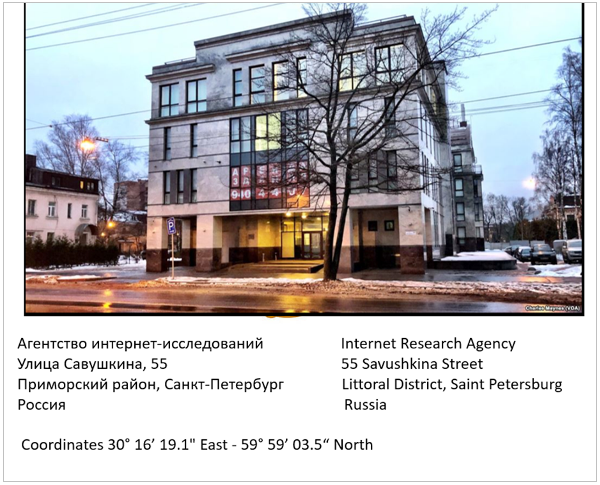

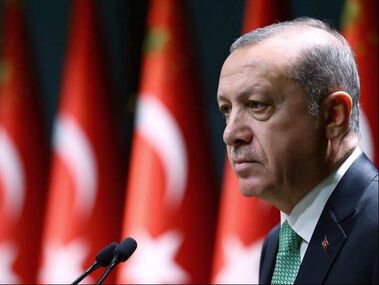

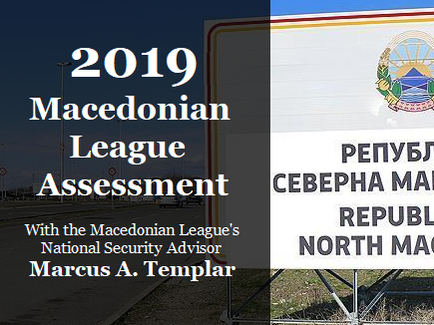
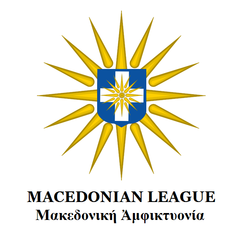
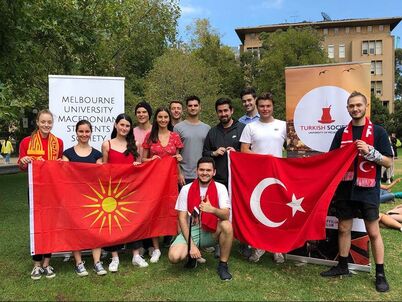
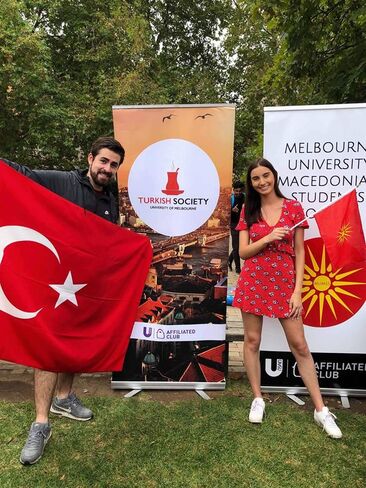
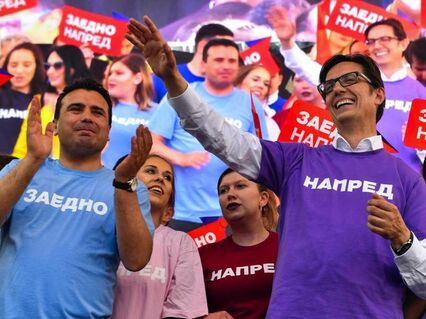

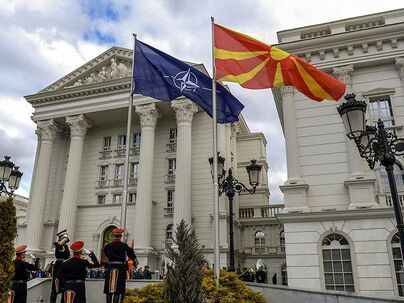
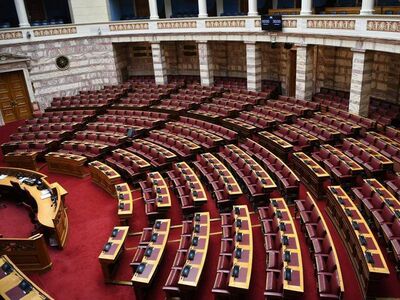

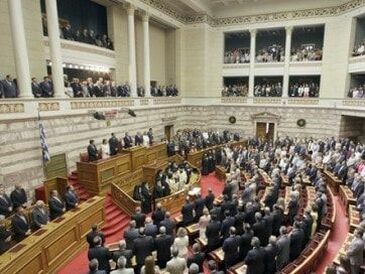
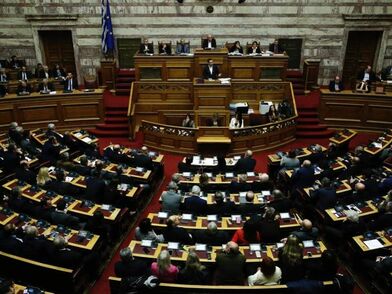
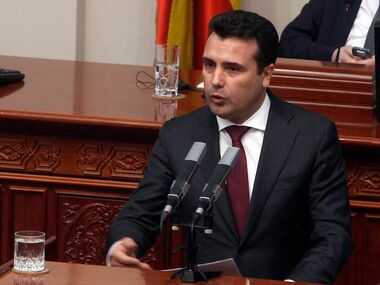
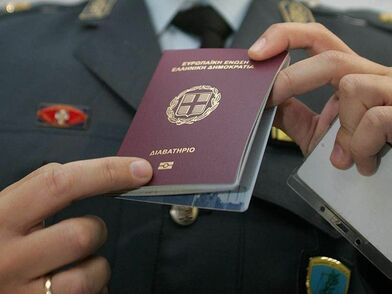

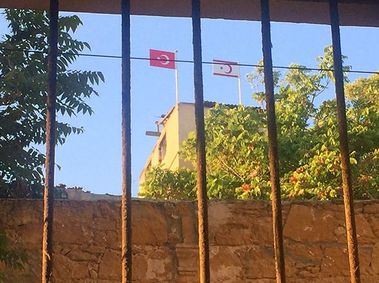
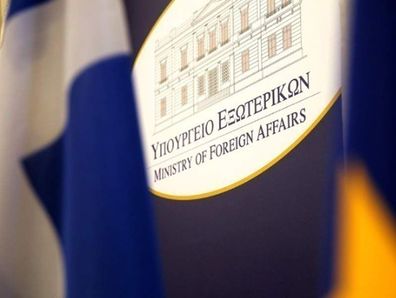
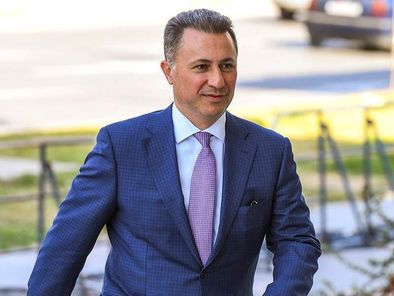
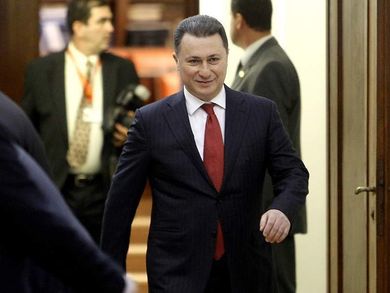

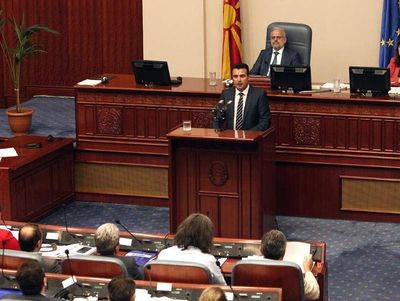






 RSS Feed
RSS Feed